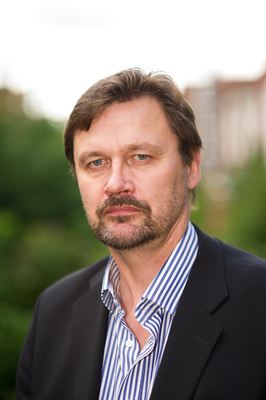Fewer relapses in schizophrenia with long-acting injections

[PRESS RELEASE 2017-06-07] The risk of relapse among patients with schizophrenia differs depending on what drug is administered, suggests a register study from Karolinska Institutet in Sweden published in JAMA Psychiatry. Clozapine and long-acting injections were linked to fewer re-admissions to hospital than other antipsychotics.
Antipsychotic treatment is used to prevent relapse into the mental disorder known as schizophrenia. There are several kinds of antipsychotic drugs today but it has been controversial whether there is any clinically relevant difference between the various treatments when it comes to preventing relapses.
To find out, researchers at Karolinska Institutet carried out a register-based study of 29,823 Swedish patients who were aged between 16 and 64 in 2006 and who were diagnosed with schizophrenia between 2006 and 2013. Every individual was used as his/her own control to eliminate selection bias that might otherwise occur, because patients who are more seriously ill are often treated with other drugs than those who are not as ill.
The researchers then looked at what medications the patients had been used and if they had been admitted to hospital again, attempted suicide, stopped taking their medication or died.
“We saw considerable differences between the various antipsychotic treatments. Clozapine and long-acting injections were linked to the best results,” says Jari Tiihonen, specialist doctor and professor at Karolinska Institutet’s Department of Clinical Neuroscience.
The risk of the patients having been re-admitted to hospital was about 20-30 per cent lower if the patients were given long-acting injections of antipsychotic drugs compared to if the patients received the same medication but orally. This difference was in particular observed in those patients experiencing their first episode.
“Our findings indicate that the risk of the patient being admitted to hospital again varies between different antipsychotics,” says Jari Tiihonen.
The study has been finalised with the help of funds from Janssen-Cilag. Jari Tiihonen has worked as a consultant for Fimea (Finnish Medicines Agency), AstraZeneca, Bristol-Myers Squibb, Eli Lilly, F. Hoffmann-La Roche, Janssen-Cilag, Lundbeck and Organon.
Publication: 'Real-World Effectiveness of Antipsychotic Treatments in a Nationwide Cohort of 29 823 Patients With Schizophrenia'. Jari Tiihonen, Ellenor Mittendorfer-Rutz, Maila Majak, Juha Mehtälä, Fabian Hoti, Erik Jedenius, Dana Enkusson, Amy Leval, Jan Sermon, Antti Tanskanen and Heidi Taipale. JAMA Psychiatry, online 7 June 2017, doi: 10.1001/jamapsychiatry.2017.1322.
For more information, please contact:
Jari Tiihonen, professor
Department of Clinical Neuroscience, Karolinska Institutet
Phone: +358 50 341 8363
E-mail: jari.tiihonen@ki.se
Karolinska Institutet is one of the world’s leading medical universities. Its vision is to significantly contribute to the improvement of human health. Karolinska Institutet accounts for the single largest share of all academic medical research conducted in Sweden and offers the country’s broadest range of education in medicine and health sciences. The Nobel Assembly at Karolinska Institutet selects the Nobel laureates in Physiology or Medicine.
Tags:


